If you work in the state in any industry, you have the right to expect a reasonably safe working environment. Some industries are inherently dangerous, but every employer in every industry has the responsibility to ensure their employees do not face unreasonable hazards at work each day. Unfortunately, workplace violations commonly occur in various ways, including work environment temperature violations.
Understanding Your Rights As an Employee
The Occupational Safety and Health Administration (OSHA) is the federal agency responsible for maintaining workplace safety regulations and investigating violations of those regulations. The California Department of Fair Employment and Housing (DFEH) operates similarly at the state level. Both of these organizations enforce workplace safety policies that apply to all employers.
As an employee, you have the right to a reasonably safe workplace. While some places of employment are inherently dangerous in various ways, employers in these industries are required to follow specific safety regulations to minimize the chance of employee harm. Employees also have the right to request reasonable changes to their work environments when safety concerns arise, and they have the right to report violations without fear of retaliation.
In California, an employer must provide employees with a heated room if their standard work environment requires a temperature lower than 60 degrees Fahrenheit. Heated rooms, as well as break areas, restrooms, and changing rooms, must be kept at least 68 degrees Fahrenheit. Workplace temperature violation claims can arise when a work environment gets too cold during the winter or too hot during the summer. The latter is more common in the state.
Potential Risks of Workplace Temperature Violations
While workplace temperature requirements may sound like a relatively minor issue compared to other risks you might face at work, the reality is that workplace temperature violations have the potential to cause severe medical complications, the most common of which would be heat-related illness and injuries from workplaces that are too hot. These injuries and illnesses can lead to workers’ compensation claims.
Every employer must have workers’ compensation insurance, and almost all employees are covered by this insurance. If you suffer any adverse medical effects from a workplace temperature issue, an experienced attorney can help file a claim for workers’ compensation benefits. It is also possible that your employer could be compelled to take steps to fix the problem and prevent future harm to you and your coworkers.
Most workplace temperature violations pertain to workplaces that are too hot. Heat stroke and heat exhaustion are potentially life-threatening medical conditions that may leave affected employees severely harmed, facing long recovery times. If you believe you or a loved one has been injured by a workplace temperature violation, it’s vital to consult an experienced attorney as soon as possible.
Recovery From Work-Related Illness and Injury
A successful workers’ compensation claim can yield full coverage of your medical expenses related to a work injury; you can also receive disability benefits while you are unable to work during your recovery. Additionally, if it is revealed that your employer failed to abide by industry safety regulations or if a third party directly caused the harm you suffered, it could open the door to further legal recourse that could enhance your recovery significantly.
The attorneys at Pratt Law Corporation have years of experience resolving all types of complex work injury cases and helping employees hold employers accountable for their workplace safety violations. If you believe you have been harmed by any type of workplace temperature violation, our firm can help determine the scope of your options for legal recourse and help you recover suitable compensation for your damages.
FAQs
Q: What Are the Most Common Labor Code Violations?
A: While some Labor Code violations arise pertaining to workplace temperature violations, most Labor Code violations in the state pertain to problems with employee compensation. Unpaid overtime, delayed payment of wages, failure to meet minimum wage requirements, and failure to reimburse employees for business expenses are a few of the most commonly cited Labor Code violations.
Q: When Is a Work Environment Deemed Unsafe?
A: The term “unsafe work environment” is quite broad and can apply to any situation in which the work environment poses a physical safety risk to an employee. Temperature violations can cause an unsafe work environment, and so can damaged floors and equipment, poorly maintained tools and vehicles, failure to abide by industry safety regulations, and a host of other possible issues.
Q: At What Temperature Is It Unsafe to Work?
A: OSHA sets various standards for unsafe work environment temperatures based on the level of intensity of the work. For example, temperatures below 70 degrees Fahrenheit are considered low risk for strenuous work, while temperatures between 70 and 77 degrees are considered moderately risky for strenuous work, and temperatures above 77 degrees are considered high risk.
Q: What Is the OSHA Code for Unsafe Working Conditions?
A: OSHA Code 1960.30 pertains to abatement of unsafe or unhealthful working conditions. If an employer is found to have violated this or any other OSHA code, they face fines and other penalties and may be compelled to stop operations until the problem has been appropriately addressed. Remember that employees cannot be penalized for reporting OSHA code violations in good faith.
Q: Should I Hire a Lawyer for a Workplace Temperature Violation Claim?
A: If you were harmed by unsafe temperatures at work, you likely have grounds to pursue a workers’ compensation claim. If you reported an OSHA code violation and your employer retaliated against you, an attorney can help hold them accountable. Ultimately, hiring an experienced attorney can be a tremendous asset for any workplace temperature-related case.
The attorneys at Pratt Law Corporation believe that employers must be held accountable when they violate OSHA codes or pose health and safety risks to their employees. If you need legal assistance for any work-related issue in California, our team is ready to help you. Contact Pratt Law Corporation today to schedule a consultation and learn how we can assist you.




